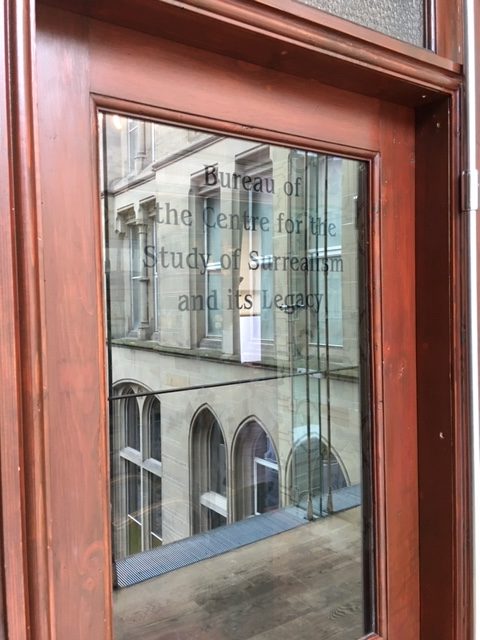Chances are pretty good that you didn’t expect to be where you are right now, managing people who are no longer sitting within 100 feet of you. I will admit that when I started this company and hired my first two virtual employees, I got really lucky. Both were (and are) self-motivated people with a sense of responsibility and respect for their teammates.
I had never managed a virtual team before, and back then there really weren’t any examples for me to copy. We just sort of made it up as we went along.
There have been a few hiccups along the way, but thankfully not too many, and in that time we’ve learned a lot. I wanted to share some of the best lessons I’ve learned personally, as well as some I’ve gotten from some expert advice along the way to help you be successful in the weeks (and months?) ahead.
The ship is rocking. You are the stabilizer.
You’ve hired good people. One of the best things you can do now is to avoid micromanaging them. Everybody is figuring out this new world of working from home, and there are going to be bumps in the first few weeks for your staff – and for you personally. Factor in wiggle room while people are getting settled in.
Also, remember that this is just a very unsettling time, and people are going to react to it differently. Some will just “keep calm and carry on” (or maybe that’s just what they’ll project to the world). Others will be overwhelmed as the primary caregiver and salary earner. People that have always been a calming force on your team may suddenly become unreliable as they have difficulty processing what’s happening. And the normally unreliable one may prove to be a huge sense of comfort or laughter when you least expect it. People will settle down, but probably not for a few weeks.
Your demeanor as a supervisor will really matter now, too. When times are unsettled, people long for normalcy and they appreciate steadiness. I’m not saying that you need to memorize Churchill speeches or become someone you’re not. But right now is the time to be that leader you’ve always wanted to be.
You’re going to have to be flexible
If you can, extend non-critical deadlines. Although someone used to be at their desk at 9:00 on the dot, if they’ve got kids that are not in school that’s probably not going to be the case anymore. Other workers might be more productive from dawn until mid-afternoon. As a manager who wants to keep and motivate your team, you’re going to have to find your zen about this. When there are non-moveable deadlines, be sure you’re crystal clear about them.
Trust, but verify
To help your team manage their time, and enable you to spot trouble areas before they happen, you and your team may need to start using and relying on tools like Toggl for time management and project management tools to stay productive, even if you haven’t tracked staff time before. Most of your team are going to be conscientious, but some will find it harder to concentrate at home and you’ll want to pick up on that quickly and figure out how to help them be successful. This will also give you key data points if you eventually need to discipline someone.
Make sure you set clear expectations. “I’ll need to see that soon” is not a useful deadline anymore (if it ever was). You can’t just drop by someone’s desk to see how things are going with a project. Communicate specific deadlines in email so there is a(n electronic) paper trail.
Transparency is really important
You might want to start a Google doc or have a document on your shared server with important dates or deadlines that everyone has access to. We use a group calendar to track meetings, medical appointments, and vacations and we also have a shared document with everyone’s contact information in case of emergency.
We use Zoom Projects for managing team-work, and we log all completed work in a shared spreadsheet when it’s complete. Anything that you can centralize and make transparent for everyone, do it now. For example, in order to ensure that everyone is aware of resources, handbooks, or deadlines that are important for your team’s success, you may want to put them in a shared document. Those sorts of documents are helpful for new employees starting, too.
This is a great time to be on the lookout for new ways to work
One person on our team is designated as our Efficiency Lead, and he is constantly looking out for ways of improving our business practices. Now might be a good time to appoint someone or even create a small committee to be an advocate for the team and to recommend better ways of working. Be open to work processes evolving on the fly.
Communicate lots more now
It’s a thin line between not bothering people/just letting them do their work, and trying to reach out and be supportive and available for them. That said, even the most introverted member of your team will be glad for increased positive contact right now. The extroverts are already pinging you.
Most experts say to check in daily with your teammates. This is easy to do if you use something like Slack or Zoom where you can start or pick up conversations as a group or one-on-one anytime you want. While we use Zoom for group and individual chats, each of the three HBG managers also have weekly individual check in phone meetings with the people they supervise. We also meet as a full group twice a month in a video chat. It’s always nice to see each other, Brady Bunch style.
While that has always been our normal way of communicating, we now have a new normal, so last week as schools closed we created a new Zoom chat room just for the parents on our team so they can share ideas and kid activities with each other. We may even have two new junior HBG pen pals as a result! It’s important to keep tabs on what your team needs now to be productive, and understand that those needs are going to evolve.
This isn’t forever
This may not be forever, but we’re also not going to quickly forget these days. There are long-held “truths” our organizations had that we’re going to learn really weren’t true at all. And also it’s inevitable that we’re going to develop new, innovative ways of working, and that part is genuinely interesting and even exciting.
Those of us who help re-envision leadership (whether from the front or from the middle) and those who pull together are going to be the most successful in this new brave new world. What are you doing now to manage your team remotely? Share in the comments so we can all benefit and learn!
Next week: what we’ve learned about hiring virtual staff


